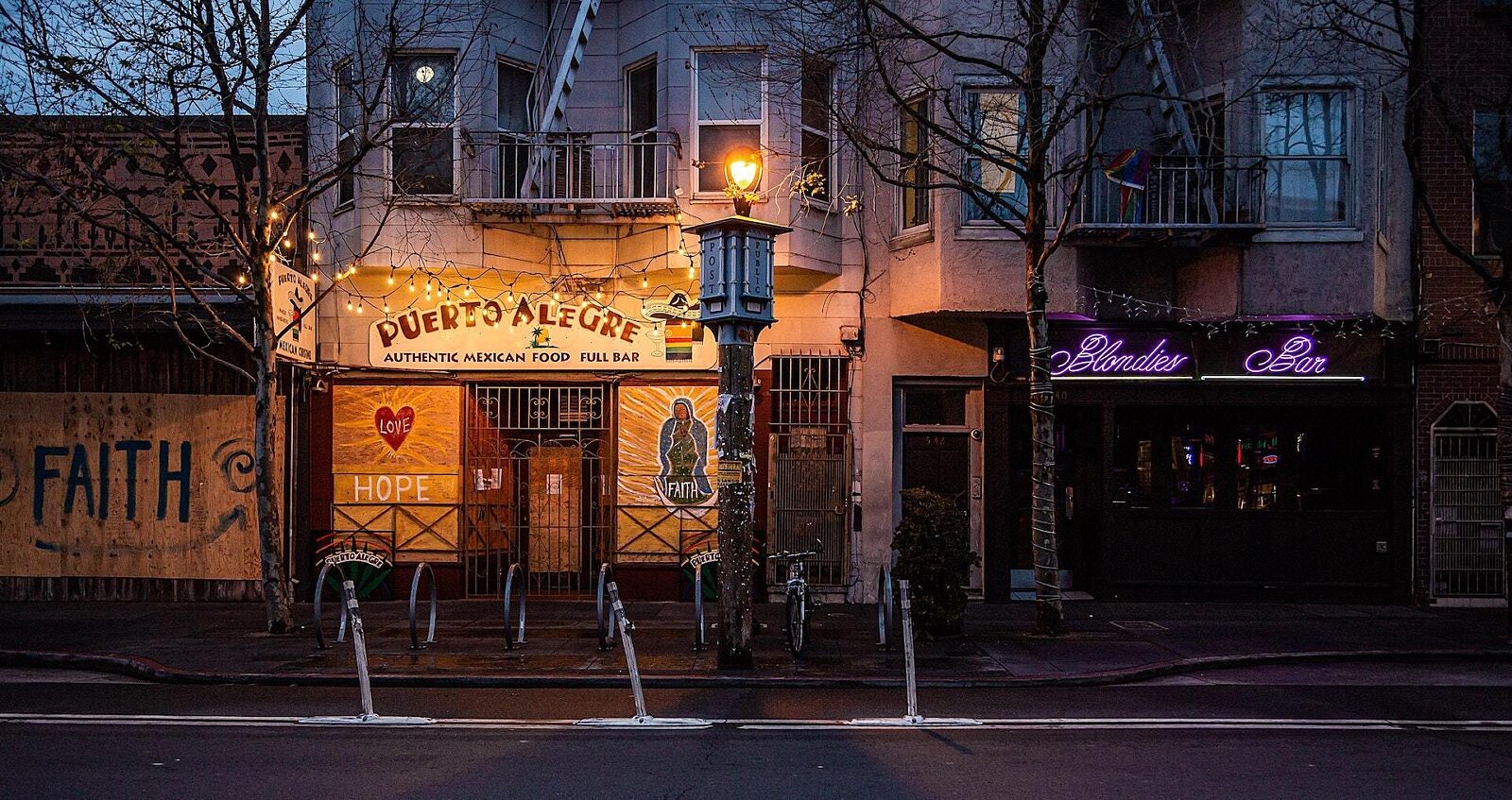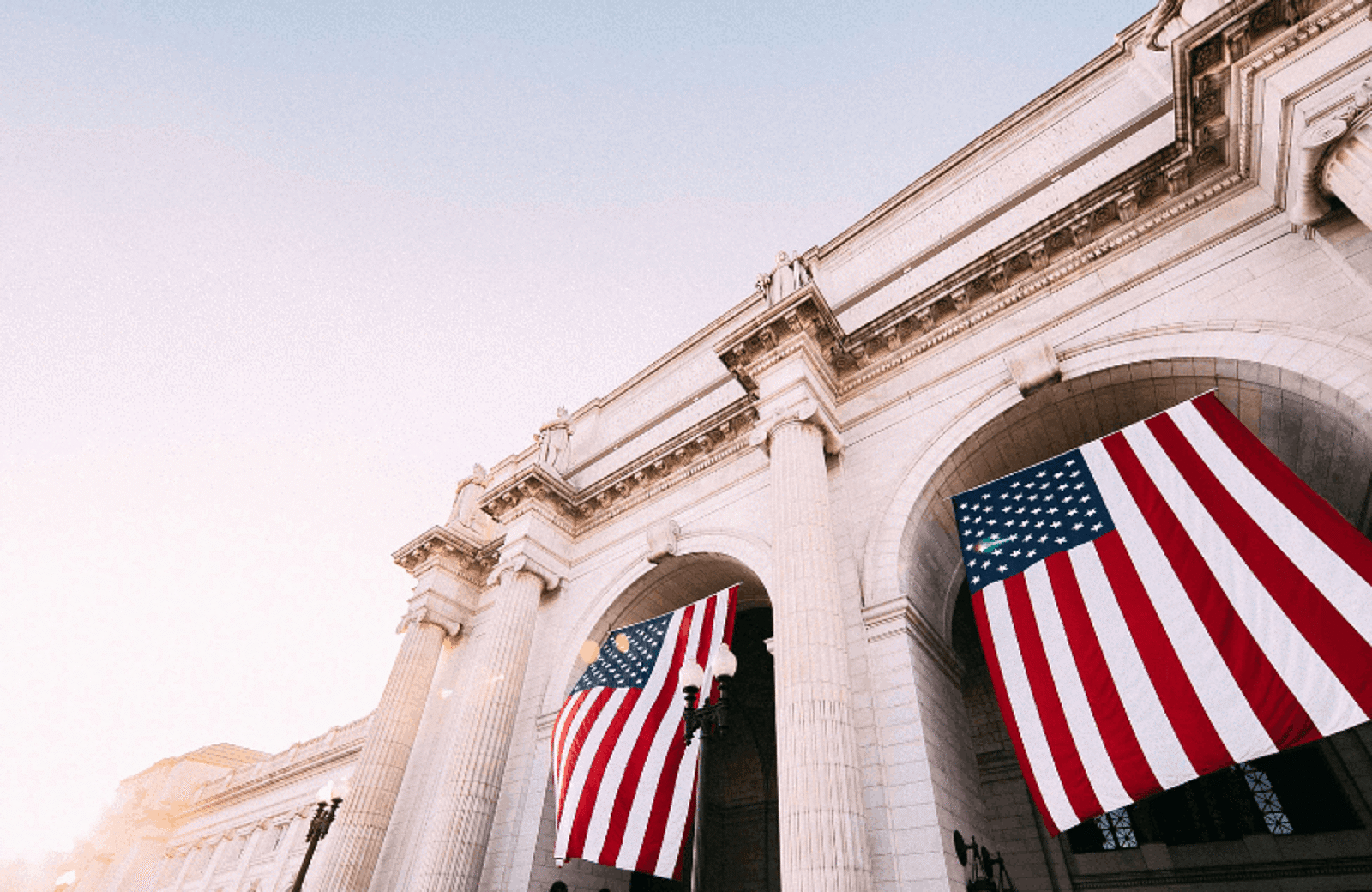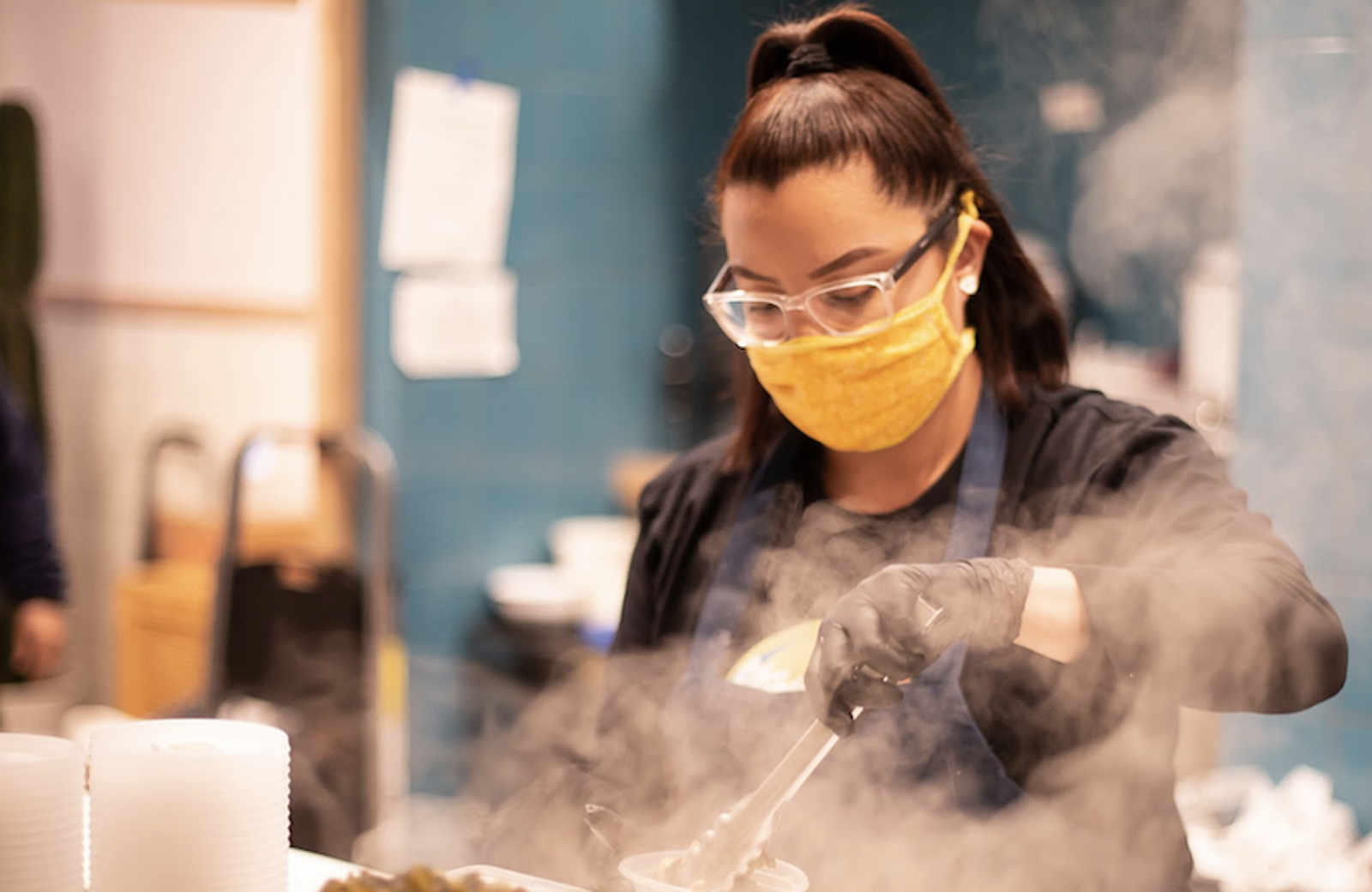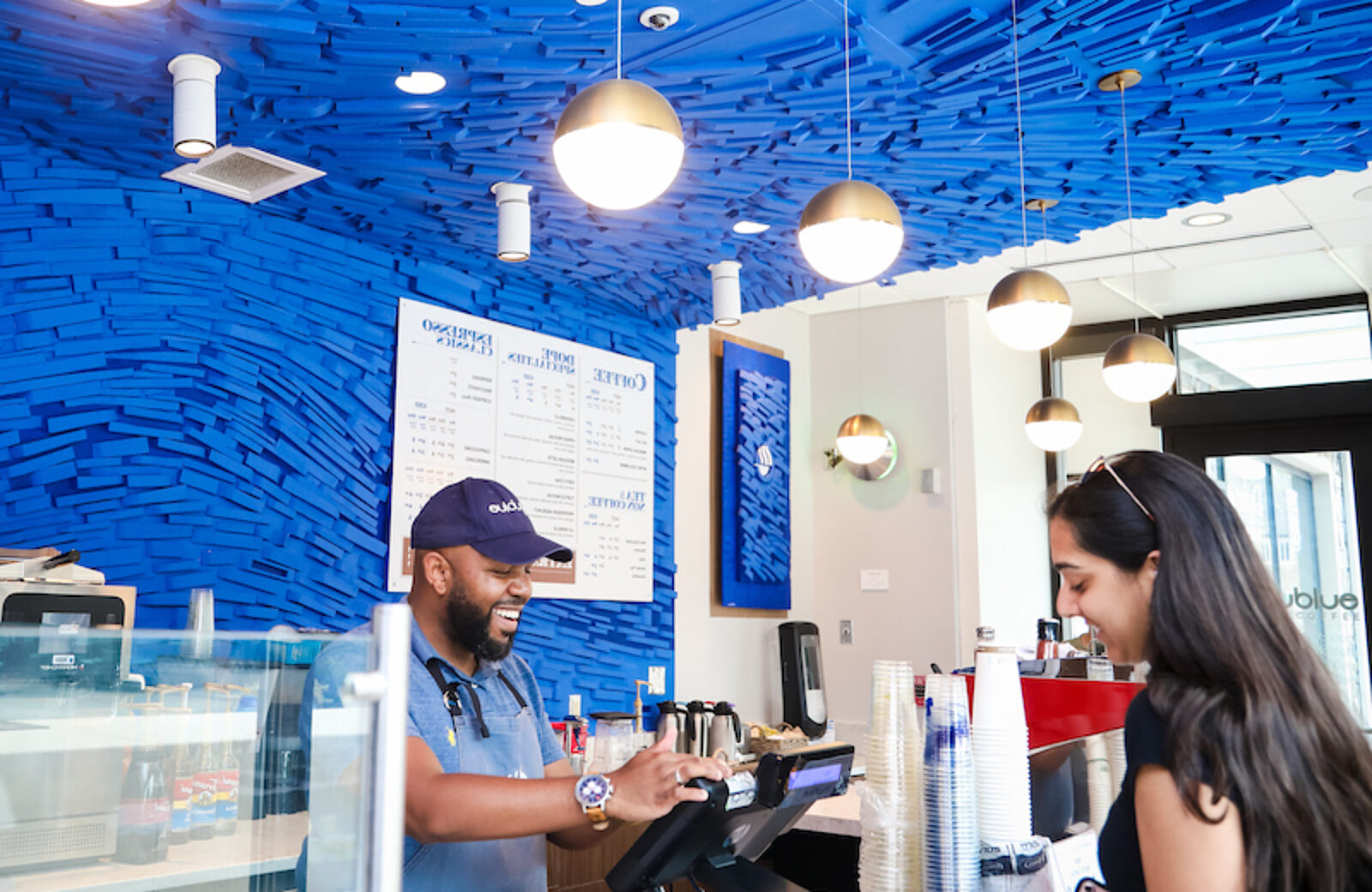
Lessons From California Restaurateurs Preparing for a Pared Down Holiday Season
The holiday season in 2020 is like no other, especially for the restaurant industry. Here's how California restaurateurs are faring.

Vaughn Stafford GrayAuthor
Typically, every December, restaurants can bank on hitting or surpassing their financial targets. With festive activities, the holiday period provides an economic boon for restaurateurs, caterers, and private chefs, as entertaining and excess are a part of the recipe for a successful Yuletide season. Not this year.
It's been nine months since we first entered lockdown due to the COVID-10 pandemic. By the second week of March, Americans had stopped going to restaurants and started to prepare meals at home. That same week, Instacart, Walmart Grocery, and Shipt saw record downloads of their apps — an increase of 218%, 160%, and 124%, respectively.
The National Restaurant Association recently conducted a survey and projects that the foodservice industry will lose $240 billion by the end of 2020. Within California alone, an estimated one in three restaurants will be casualties of the coronavirus pandemic. What will this year's holiday season look like for independent restaurants across the Golden State who, during "normal" times, would be anticipating hitting pay dirt over the coming weeks?
Two Steps Forward, Three Steps Back
At the end of October, LA County Public Health Director Dr. Barbara Ferrer commented that local dining has resulted in "somewhere between 10 and 15%" of the area's coronavirus cases. San Francisco had initially been praised for its low case numbers and touted as a model. The city once again shut down indoor dining on Friday, November 13, 2020. Why? Its daily case rates almost tripled. That same week, San Diego Country instructed restaurants to, once again, cease indoor dining even though it was limited capacity.
At 11:59 pm on Sunday, December 6, 2020, California Governor Gavin Newsome put a three-week regional stay-at-home order into effect, effectively eliminating outdoor dining, and Los Angeles and Sacramento followed suit with further local restrictions.
These orders came a few months after the launch of various COVID-19 temporary outdoor dining programs across the state. Some restaurateurs rehired staff and invested small fortunes converting sidewalks and parking lots into alfresco dining areas satisfying the new ordinances, attempting to stay afloat in a part of the country where outdoor dining wouldn’t be halted by winter. It all seems to have backfired. Their daily realities seem to be a cruel game of hopscotch. As soon as restaurateurs braving the pandemic take two steps forward, it appears that they have to turn around and take three steps back.
Christy Vega Fowler is the owner of Casa Vega, a Mexican restaurant in Sherman Oaks. She spent $30,000 erecting outdoor dining structures and, in addition to her rent, has to fork out an additional $10,000 each month to pay the tent rental company.
In an interview with the L.A. Times, Vega Fowler shared, "It's an impossible game that doesn't make any sense, and it seems like nobody cares about us. They told us we could operate with outdoor dining, we did it safely, we made the investment, and then they take it away from us. It's devastating."
Reality Bites
I've seen a significant change take place on the Atwater Village stretch of Glendale Boulevard in Los Angeles over the last three weeks. Seemingly overnight, outdoor dining and takeout lines vanished. The ding-dong that usually alerts convenience store staff of entering customers now rarely chimes, and few white plastic bags exit the doors of Coral Reef Chinese restaurant. And many of the vendors at the Atwater Village Farmers' Market who typically sell out of product lamented that the decline in sales makes them nervous. Even the Pavlovian call of Wanderlust Creamery's artisanal ice cream is no match for lockdown.
Between June 22 and July 2, the Coca-Cola Company conducted a COVID-19 impact study. Coca-Cola Company President of Foodservice & On-Premise Kathleen Ciaramello said, "Our study found that only 45% of restaurateurs are very confident they will stay in business for the next 12 months, and they need financial relief and clear, consistent standards to successfully reopen."
What does this mean for independent restaurateurs with dreams but no roadmap?
Takeout Isn't a Bail Out
In an attempt to curb the spread of the virus and offer a lifeline to restaurateurs, health officials across California allowed restaurants to offer only takeout to customers. On average, 30% of a dine-in restaurant's sales come from alcohol and 5% from takeout orders. The Coca-Cola COVID-19 impact study revealed that some restaurants saw a 54% uptick in takeout orders — but this increase isn't the panacea it seems to be.
With a switch entirely to takeout, one would think that restaurateurs are saving money, especially on front-of-house labor. They aren't. "You have the to-go container, you have the condiments, and none of those are reusable… In a business where margins are already tight, they become tighter, because now your cost to distribute the food has gone up," said JC Johnson, co-owner of the Serving Spoon in Inglewood, in an interview. The reality is that some restaurants, based on the menu, aren't equipped to offer takeout. These restaurants had to close until health officials permitted in-person dining, and now have had to close again. They've also created a GoFundMe for their loyal patrons to support their staff.
Now, 85% of bars and restaurants within the South of Market (SoMa) and Financial District (FiDi) neighborhoods appear to be currently closed, according to data from Mastercard and The San Francisco Chamber of Commerce. Indeed, some restaurants have chosen to close until the new year or whenever they can eventually open. Bar Bocce in Sausalito made that announcement on its Instagram page. In Fresno, many of the city's popular restaurants, including Tabachines Cocina, School House Restaurant & Tavern, 13 Prime Steak, and Fresno Breakfast House, have made that difficult decision as well. Restaurants all across the country have gone into hibernation.
But some restaurants have decided to permanently close. San Francisco's 157-year-old dining institution, The Cliff House, announced on Sunday, December 13, that it would serve its last takeout order on December 31. Citing the pandemic, "losing too much money as a takeout-only operation," and an inability to reach a long-term operating contract with the National Park Service since the 2018 expiration of a 20-year one, the owners Dan and Mary Hountalas have decided to close the curtains on a storied institution. A hundred and eighty people will lose their jobs.
A Stiff Drink
A survey of 230 brewery owners by the California Craft Brewers Association revealed a 43% decrease in overall sales. Since March, the California Department of Alcoholic Beverage Control (ABC) has issued six notices of regulatory relief designed to "Support the alcoholic beverage industry in its efforts to assist California in slowing the spread of the virus while assisting the industry in dealing with the economic challenges it is facing as a result." The most significant iteration of the relief allowed for the sale of alcoholic beverages to-go and delivery to consumers, including liquor license holders without kitchen facilities. Some restaurants and bars have had to pivot, offering alcohol sales and delivery, not to be left grasping at straws.
With the purchase of a family-style takeout meal, customers at Bon Vivant Market & Cafe in L.A.'s Atwater Village can add a bottle of wine to their order for $10. Over in Thai Town, Tabula Rasa Bar is paying the bills and keeping the hope of reopening alive with online wine orders. But take a walk on any of San Bernardino County's high streets, and you'll see bars open past the 10:00 pm curfew — despite Governor Newsome's ordinance not exempting bar staff but rather "Workers supporting restaurant carry-out and quick-serve food operations, including food preparation, carry-out, and delivery food employees."
To survive a holiday season in lockdown, some restaurateurs have chosen defiance. And others, litigation.
We're Not Gonna Take It
L.A.'s seventh district councilwoman Monica Rodriguez is on a mission to overturn the ban on outdoor dining. From Rodriguez's point of view, restaurants "were operating all summer, and we didn't have a problem. So I want to understand: how do we all of a sudden have a problem now?" On Wednesday, December 2, L.A. County Superior Court Judge James Chalfant ordered county public health officials to give scientific evidence to justify the ban on outdoor dining. In a briefing a week later, Dr. Heller shared data that revealed spikes, up to 200 percent, in coronavirus cases in "dozens of communities." The next day L.A. County explosively shattered previous single days records by recording 12,741 new cases.
"I have been in discussion with the health authorities from the state of California who called me and asked, you know, they said, 'We feel we need to do this, what do you think?' And I said, 'You know, you really don't have any choice.' When you have the challenge to the healthcare system, you've got to do something like that," said the nation's leading pandemic expert, Dr. Anthony Fauci, in an interview on CNN's weekday morning show New Day. But the data and over-capacity ICUs aren't enough for some restaurateurs.
Dave Foldes is the co-owner of Cronies Sports Grill in Ventura County. He has not complied with the ban on restaurant dining and, as a result, has had health permits suspended and incurred a fine of $500 each day he stayed open. According to Foldes, even with outdoor dining, the restaurant was losing up to $10,000 each month. Surprisingly, he's not alone. In San Diego, Meat Monsters Grill owner Anthony Andrews has made multiple appearances on local news broadcasts. He believes the government is "overstepping their boundaries," and his defiance is so that he can keep the doors of his family-run business open.
A coalition of 19 Bakersfield restaurants is suing Governor Newsome. They believe that this new shelter-in-place ordinance is "unconstitutional" and that the governor has "exceeded his authority." This suit follows claims totaling $100 million filed by struggling restauraters in San Diego, Los Angeles, Orange, Sacramento, San Francisco, Monterey, Placer, and Fresno counties. In October, the independent business operators sought "refunds of state and local fees assessed during the COVID-19 pandemic."
As in every industry, some businesses will "suck salt" perpetually. In contrast, others appear to know how to roll with the punches and pivot.
Opportunity Knocks
George Chen and his wife, Cindy Wong-Chen, are the "mom and pop of 25,000 square feet." The Chens own three-year-old China Live, a four-story restaurant in San Francisco dubbed "the most expensive restaurant in Chinatown." Now instead of 200 employees running around and shouting "behind," 40 members of staff keep the operational wheel spinning. Even though the Chens have estimated this year's losses to be in the seven figures and won't take anything home this holiday, they aren't giving up. In addition to delivery, and launching opulent holiday meal kits, the Chens have moved their retail gift shop online. The wok and panda kid's gift sets have already sold out.
Food festivals and markets also don't have to be things of the past. With proper planning, social distancing, strict hygiene practices, and a strong social media presence, they can work in our new normal. They can become the model by which independent restaurants can add to the bottom line this season and in the coming year.
From December 7 to 13, close to two dozen independent San Gabriel Valley restaurateurs participated in the inaugural SGV Eats food festival. A Facebook Group that is now 30,000 members strong bore the event. There, residents shared their favorite spots and what was open during the pandemic. The Bay Area hosted the first-ever Halal Restaurant Week December 9 through 13. Also a product of a Facebook group — Bay Area Halal Foodies — the event introduced the group's 4,000 members to independent local restaurants that serve halal food.
Then there are those for whom a food truck or stall is not enough. Some brave Californian restaurateurs have opened brick and mortar establishments in the past couple of months. The power of new, plus consumers looking to food for comfort, is on their side.
Eggbred in Orange County and Chifa Chinese and Peruvian in L.A. County are currently popular dining spots. What's their secret sauce? Offering meals that remind patrons of home-cooked dishes they will not be able to have this holiday. And menu items so decadent that they allow customers to lose themselves and be happy for as long as it takes to finish the meal.
Pared Down, but Not Erased
Regardless of the browbeating they have received, independent Californian restaurateurs are resilient and committed to making the best of a Christmas in lockdown. Whether they're on the side of science or capitalism, there's a strong sense of community now, more than ever.
I've seen restaurants selling local artisans' goods in quickly-fashioned marketplaces in their empty dining areas. Others have partnered with local purveyors to create holiday hampers ideal for both novice cooks and families of one. With the CDC winter entertaining guidelines suggesting, "If attending a gathering to make your celebration safer bring your own food, drinks, plates, cups, utensils, and condiment packets," might as well stay home — or make it a non-traditional Christmas and bring your own takeout to a well-bundled bundled outdoor celebration.
This year's holiday celebrations may not be bright, but that doesn't mean we can't make them merry.
Is this article helpful?
DISCLAIMER: This information is provided for general informational purposes only, and publication does not constitute an endorsement. Toast does not warrant the accuracy or completeness of any information, text, graphics, links, or other items contained within this content. Toast does not guarantee you will achieve any specific results if you follow any advice herein. It may be advisable for you to consult with a professional such as a lawyer, accountant, or business advisor for advice specific to your situation.
Read More
Subscribe to On the Line
Sign up to get industry intel, advice, tools, and honest takes from real people tackling their restaurants’ greatest challenges.


